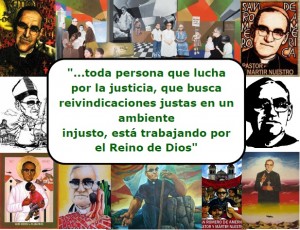
Honduras – The Jesuits defend their Option for the Poor
The letter below comes from Father Ismael Moreno, a key Jesuit leader in Honduras. In all the years I have worked with Central American community groups the Catholic Church, and especially Jesuit priests, have been critical allies of the popular organisations. Thirty years ago for example, as a young activist, I protested against the murder of six Jesuit priests and their two domestic workers in San Salvador, killed by the Salvadorean army for their support for social justice.
The Jesuits continue to work today in defense of human rights, women’s struggles and freedom of expression. This is particularly so in Honduras, where the illegitimate government is responsible for the repression of organizations working for justice. Father Moreno is director of Radio Progreso and Fundacion ERIC, and would normally rely on support from international allies, for example from Canada.
But at present, not only does Father Moreno have to deal with threats from the Honduran government – he has also been criticized by right-wing sectors of the catholic church. Recently he has received accusations from some sectors of the Canadian Catholic church that the work of Fundacion ERIC and Radio Progreso go against Catholic teachings. This letter by Father Moreno responds to these accusations. In my opinion, the courageous work of the Jesuits to further social justice in Honduras deserves our support.
The generic photos that accompany the article are by Steve Lewis, and celebrate the resilience of the grassroots church in Honduras and across Central America.
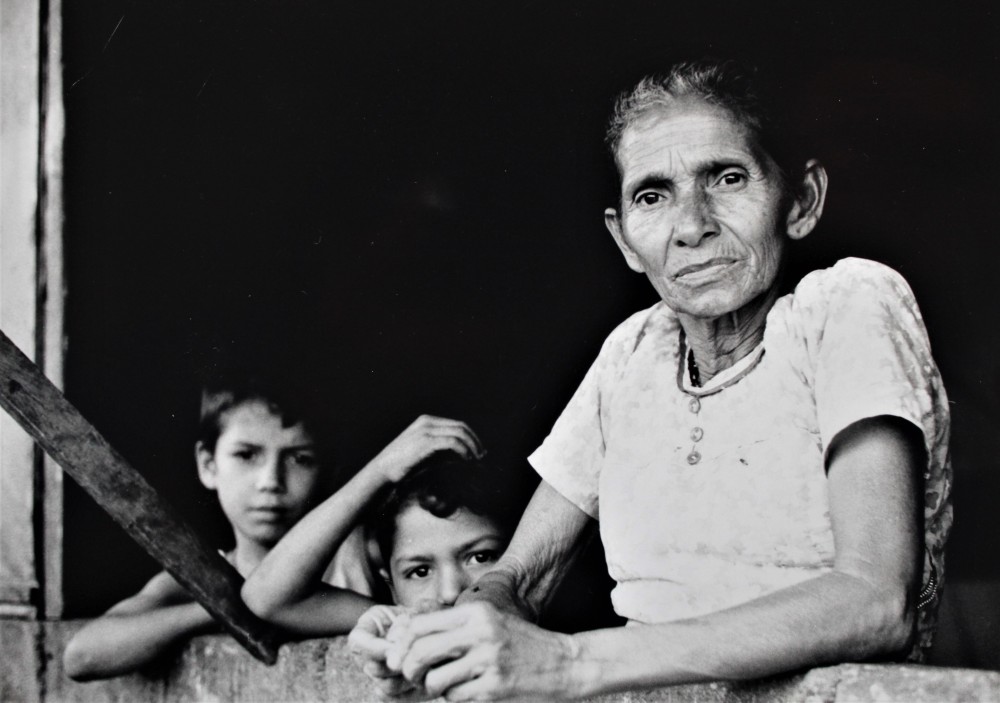
LETTER FROM FATHER ISMAEL MORENO, SOCIETY OF JESUITS
El Progreso, Yoro, Honduras, 23 July 2019
Respected Sir and Madam,
Many thanks for your email, which, as is often the case in life in my country, does not really represent the joy of good news, and only adds to our state of uncertainty, fear, threats and lack of security. I thank you especially for the ardour that shines through your letter for orthodox catholic doctrine, although this implies – as is often the case – an austerity and indifference to the social apostolate that we carry out in defence of human rights and the groups of most vulnerable people in our society.
- Above all, I am worried by the finality of the warnings in your letter. I do not know exactly if this is about defending traditional fidelity to doctrine on our part, or if you are seeking to guarantee that your funds are not used for ends different to the mission of the Church. What is very clear is that this is not a letter of solidarity with our work, nor of mercy in the face of the constant and diverse threats, including death threats, to members of our team for their defence of human rights and in particular, environmental rights cruelly threatened by transnational mining companies from Canada.
- If you have read or followed our editorial line and everything related to the materials we produce, there is no coverage nor systematic monitoring of subjects related to sexual morality. You yourselves can observe this in the texts that you cite as examples, these are isolated and do not represent a specific line on these topics on the part of our team. Your informants in our country will doubtless confirm this affirmation, if indeed they are motivated by good will because of their fidelity to the vigorous doctrine and the good of the Church, rather than by prejudices.
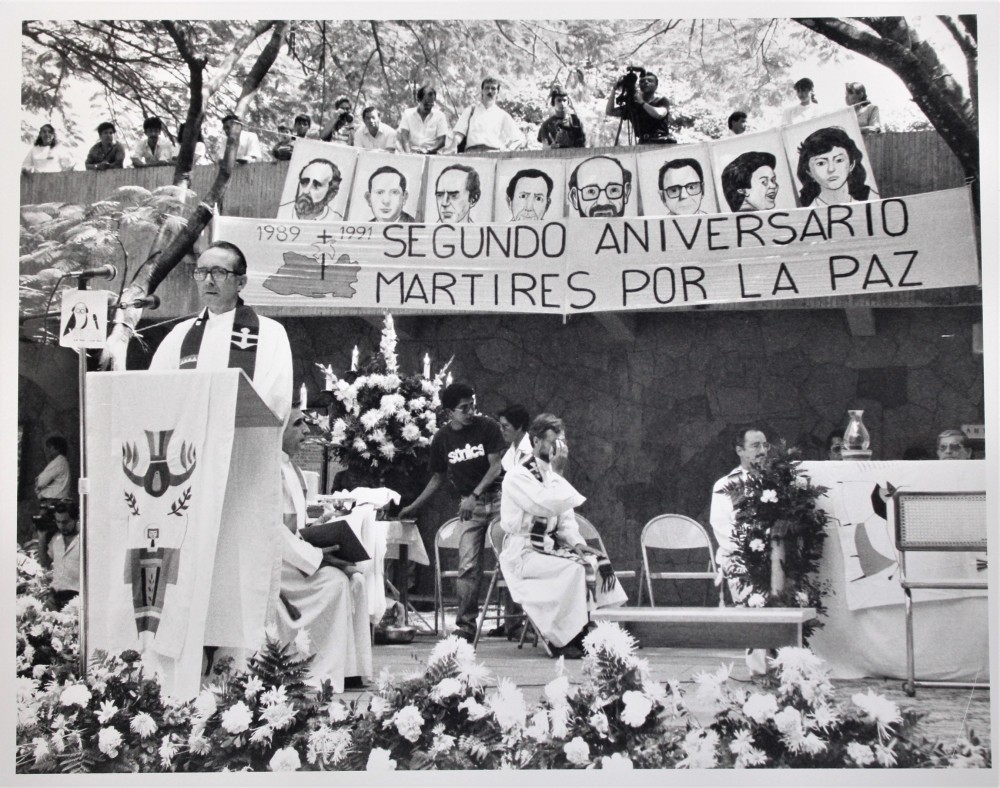
Jesuit priests have been murdered for their work in Central America. In El Salvador six Jesuits were murdered by the army in 1990. Photo Steve Lewis
- If you make an objective and unbiased reading of the texts, you yourselves can verify that some of the examples used are writings in which the topic of abortion is not covered in itself, but in relation to the political circumstances we live in in Honduras. There is no exclusive value judgment of the articles that we may publish. We simply use them to relate to the complex political situation that we have lived in and continue to live in. One of these, my own text, refers to abortion not as an issue in itself, but the use of the subject of abortion by political groups who are experts in using topics at opportune moments as a screen to camouflage other burning issues. Acting on specific information that I obtained from powerful sectors, I wrote that at a point in the Honduran political situation, the topic of abortion was used to distract people from other issues and generate a barren and pointless debate. In an editorial by our Radio, we made the same point. Our editorial line has not directly tackled the subject of abortion nor other subjects related to sexual morality that go against the official doctrine of our Catholic Church. Nor is this subject on our agenda.
- I accept that the other articles are contrary to official Church Doctrine. This is not an official editorial line of our Radio nor of the ERIC Foundation, and I accept that our tolerance of articles along these lines can at the very least confuse some of our readers, and I accept responsibility for this tolerance without having previously set limits, and I agree with the principle of working to redefine criteria in order to avoid restricting ourselves to tolerance of ideas that may lead to confusion or appear to be part of our editorial line.
- Having said this, I must point out that we are defenders of freedom of expression in a country in which the latter is under siege because of state meddling in the media and stigmatization of those of us who oppose public policies that are contrary to the common good and respect of human rights.
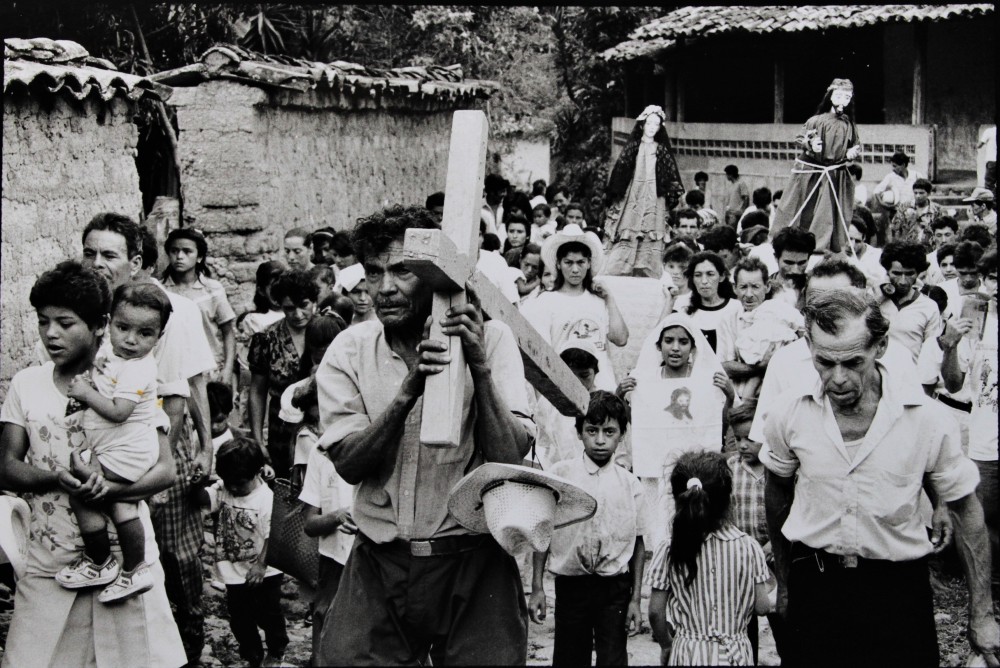
The grassroots Catholic Church is alive and vibrant in the villages and urban slums of Central America. Photo Credit Steve Lewis
- And I know it is bold of me to say this, in the face of your prudence in regards to life and your wish to avoid risking mistakes, but I have to say that it is not in the interests of the Church, in this day and age, for the media to restrict the circulation of ideas. I believe that the clearer we are about what we believe in, the more flexibility and tolerance will we have in the face of the different subjects that arise in a society that is increasingly diverse. A failure to listen to others who are different to us, to abstain from debate with those who think differently, distances us from society, and we run the risk of isolation and inability to fulfil our gospel given mission of being a critical conscience of society.
- Our editorial line is based on defence of life in any situation or state it may be in. We believe in the defence of life from the moment of conception, a dimension that you responsibly stress, we complement this position with defence of life of our youth, of the thousands of sick people without medical attention in our hospitals, their lives threatened because a significant number of high ranking civil servants and politicians have stolen medical equipment and drugs. We defend the lives of the communities threatened by extractive projects, in particular mining, several of which are controlled by Canadian companies. If we are to defend the women abused by men, victims of the abuse of power, or even those who are used as cannon fodder by drugs traffickers, and who are often forced to have abortions, then we must do this firmly. And if we were to defend the rights of women who are accused and criminally charged for having abortions, while the men who made them pregnant and exposed them to extreme vulnerability go free, we would also do this firmly. We defend life in all its dimensions, of course, from the moment life begins in the mother’s womb. And not only in the mother’s womb, but also, and even more firmly, once that life has emerged from the mother’s womb.
- Defence of the right to life of those who have emerged from the womb often brings risks and consequences to life, situations that we members of ERIC and Radio Progreso have already experienced. Because of our defence of the life of all persons in all circumstances, we have received multiple death threats and we have relied on the solidarity of many, including my Jesuit community in Canada, and many other social sectors. And it is with much joy that we can testify we have received an unambiguous and generous solidarity from Development and Peace. When I saw who your email came from, I was heartened by what I thought was an expression of solidarity of the Canadian Bishops’ Conference, just at a very difficult time, precisely because we have put our means of communications and our human resources at the service of the defence of life, threated by a regime that is increasingly authoritarian and increasingly harsh against those who think differently to it. Because of our defence of the lives of our emigrant compatriots, terribly threatened on their journey to the United States, they have accused us of encouraging massive caravans of asylum seekers and of working with other groups that promote emigration.
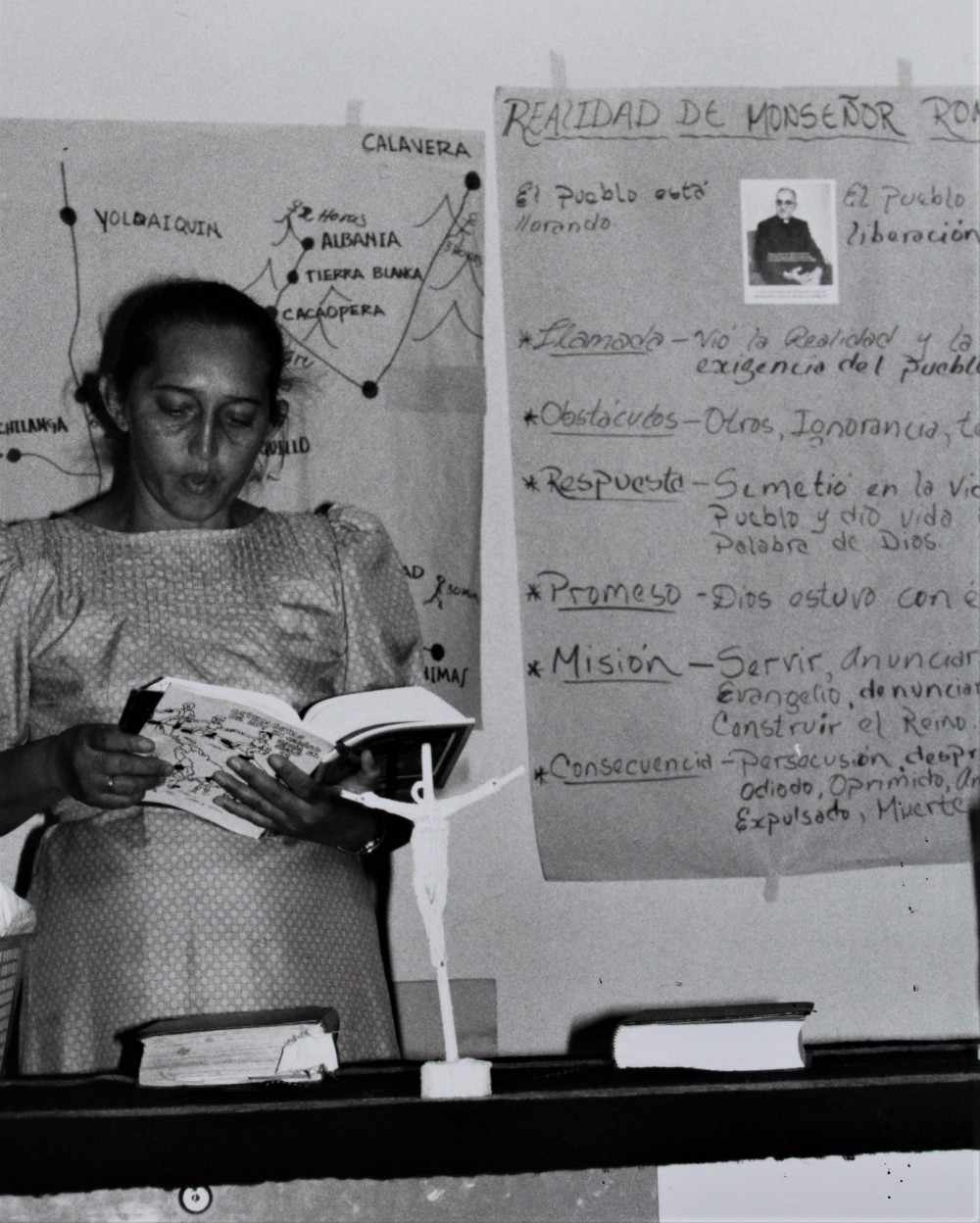
The teachings of radical priests and sisters have inspired the development of women across Honduras and El Salvador. Photo Credit Steve Lewis
- Things are this way because we work increasingly in networks with other Jesuit and church apostolic works and with civil society. And things are this way because it is our opinion that the data shows that mass migration is a phenomenon that has intensified in the last decade, as a consequence of the deterioration of human, social and economic conditions, and because of the corruption of state sectors. For this reason, our lives are threatened, because we work not only to help the refugees and other Honduran sectors whose lives are threatened, but because we try to look for the root causes and analyse who is responsible for the situations that put our most vulnerable people at risk. And if all we did were help the people who suffer these injustices, we would doubtless receive cordial treatment from the corrupt politicians and civil servants. But as we defend the rights of the people whose rights are threatened, and we denounce with statistics and data those who bear the greatest degree of responsibility for these threats, our own lives have been thrown into the same situation of threat of those thousands of lives that we try to protect and defend.
- We members of the work team of ERIC and Radio Progreso are frail people, all of us, without exception, come from families of Christian believers, and we earn an honest wage that will never make us rich, but we are honoured to work putting our faith into action, in the promotion of justice, human rights and peace. Because we work in communications and in harmony with the apostolic mission of the Company of Jesus, we are right in the thick of the clamouring realities of society, and we are vulnerable to making mistakes. And we make them. And as frail human beings, although we don’t like to admit our frailty, we confess we are sinners and we need daily conversion.
- We are conscious that frailty is part of our reality and for that reason, we not only recognize that we err and that as men and women who are sinners, we ask forgiveness for our mistakes, our lack of generosity, our half-heartedness and mediocrity in giving ourselves up to our suffering people, and for our cowardice in speaking out forcefully enough, with disregard for the power and prestige of those we have to address, in the name of the poor. We fear we may be misunderstood on our errors and frailties, because we understand that we write to you, who are frequently infallible in error and wholly satisfactory in your human, ethical and Christian practice. However, I ask you in the name of my work team, to not limit yourselves to condemning our practices, however mistaken we may be, but we would also hope you would indulge us with some mercy and solidarity with who we are and what we wish to do, and continue to do in defense of the poor.
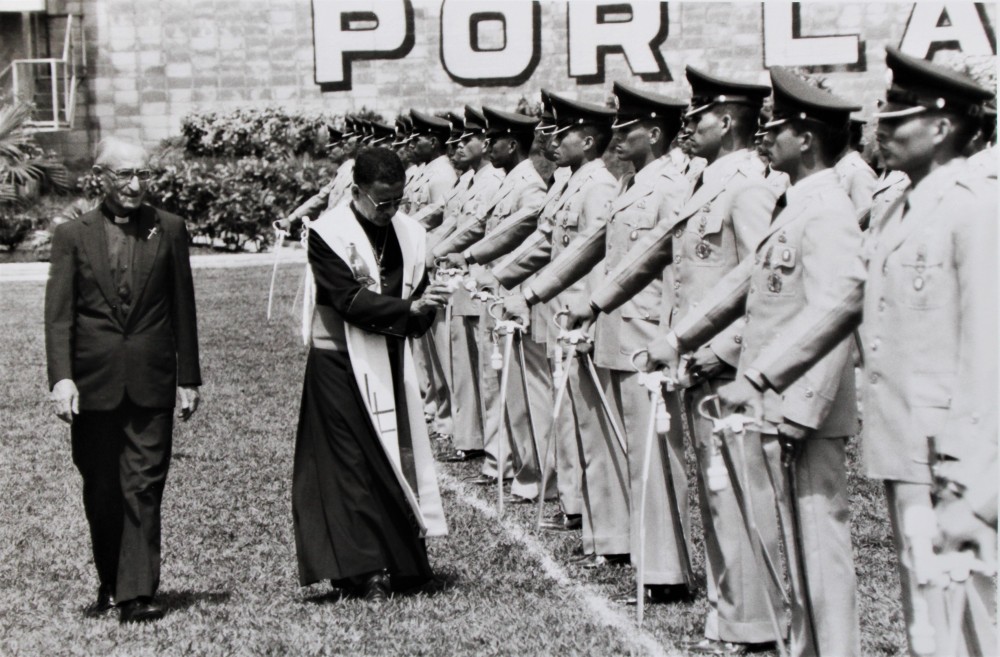
During the civil wars of the 1980’s the Church had to take sides in the conflict. To their discredit, some of the conservative church sided with oppressive armies. Photo Credit Steve Lewis
- On consulting with my work team, we all wondered why the confidentiality you request is necessary, given that we are dealing with subjects of public debate. We prefer and demand that this debate be made public, and that others’ opinions should be heard. Keeping confidential topics and dealings that are obviously of a public nature can lead to arbitrary decisions that go against people’s dignity. Nothing should be secret, express in public and before society what you believe and how you evaluate us and our work. And we will do the same, as missionaries of the Company of Jesus in the service of the Church, we will inform all our volunteers and friends in solidarity of your suspicions about who we are and how we act and think.
- If you got this far in your reading of this missive, we would like to know what moves your letter and what it is you expect from us. I say this, because although we need funds to survive in our apostolic mission, we would hope that the chill of the eternal Canadian winter that pervades your letter is not induced by a review on whether to continue or suspend funding to us. We are a humble team and we live on solidarity, mainly from international organizations. But we cannot allow money to decide what we do or stop doing, this must be determined by faith and conviction in our apostolic mission that we receive from the Church, through the Company of Jesus, a mission that is incarnate in the cries of the poor of our Honduran society. If you decide to put an end to the funding that you have been providing for some years now, we are not going to rant and rave, but we will inform all our Honduran and international friends. It will be a great pity because we need the solidarity funds, but, blessed be God, we will not fight, nor will we allow ourselves to be humiliated. We may end up without funds to carry out our work, maybe some of us will have no pay. But if the funds are conditional, it would be better for us to carry on weaving hope even if we stop working, but whatever we do, we want to continue doing it with faith, love and dignity.
- Finally, from the North comes the solidarity of peoples, always with so much generosity and simplicity, and over these years, this has been the way with Development and Peace. But the North has also sent interference, conditionality and prejudices, and a muzzle that seeks to silence us. We would hope to receive from you a generous presence of solidarity, which we are sure will never be like the experience of the mining companies who come with their truth of extractivism, taking away our mineral wealth and leaving us the consequences of misery and death. There is no doubt that we will continue to hope for you to be a gentle presence of solidarity in our lives, and by extension, those of the suffering people we work with. And we will remain grateful for your suggestions and your concerns, that not only do we accept, but we commit to address.
With my embrace and prayers,
Father Ismael Moreno, SJ (Padre Melo.)
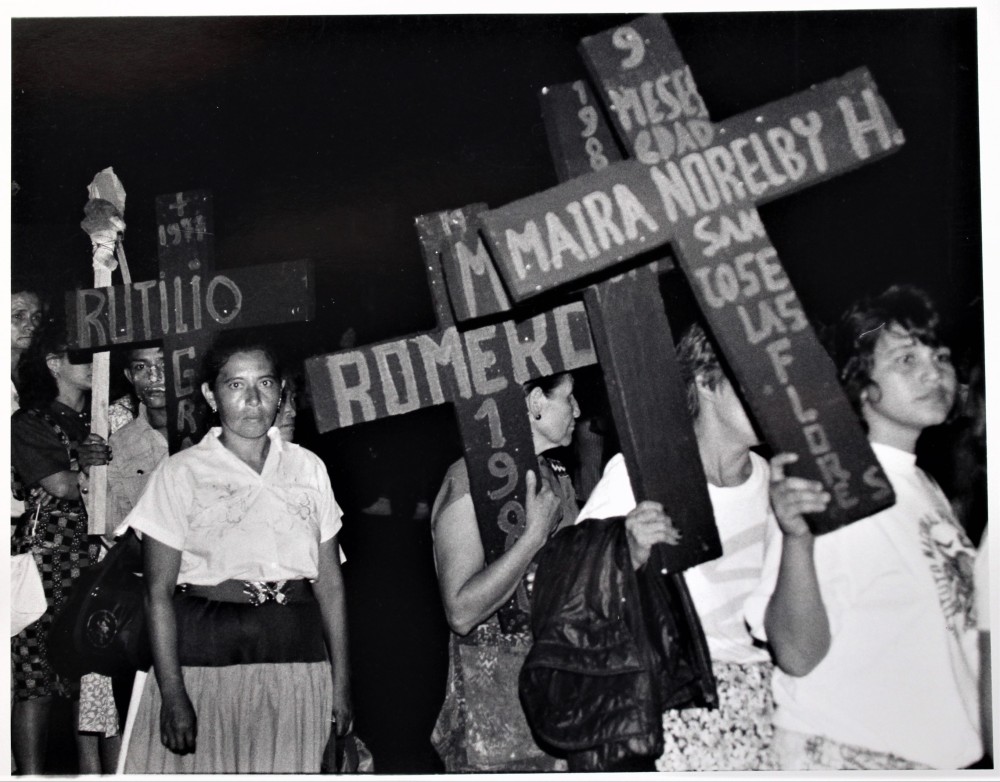
The international community need to stand in solidarity with human rights defenders on the ground, as these Salvadoran women stand in solidarity with their murdered priests and lay activists. Photo Credit Steve Lewis

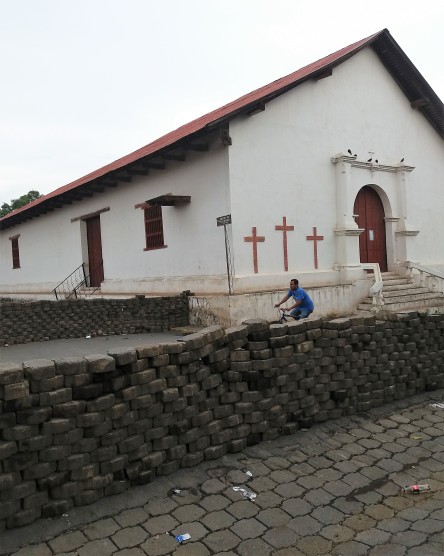
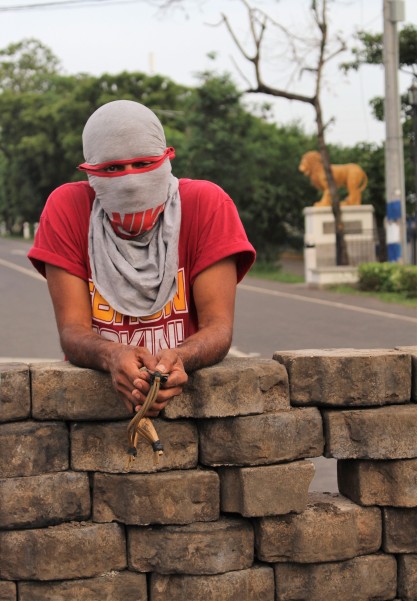
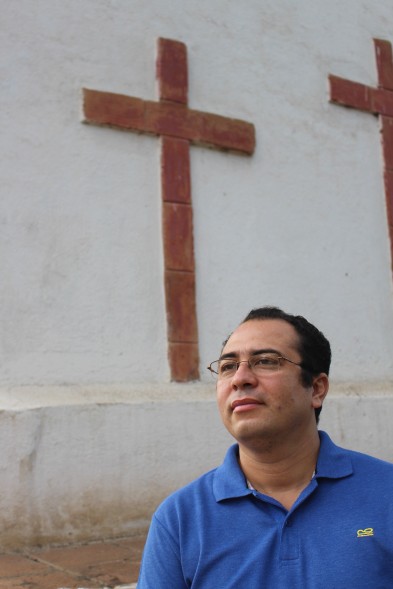
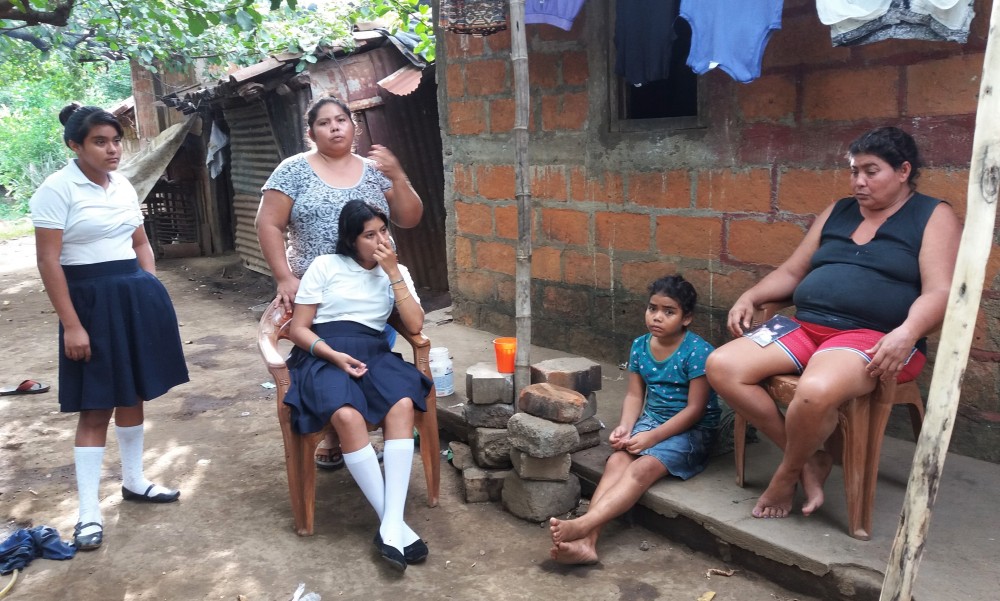
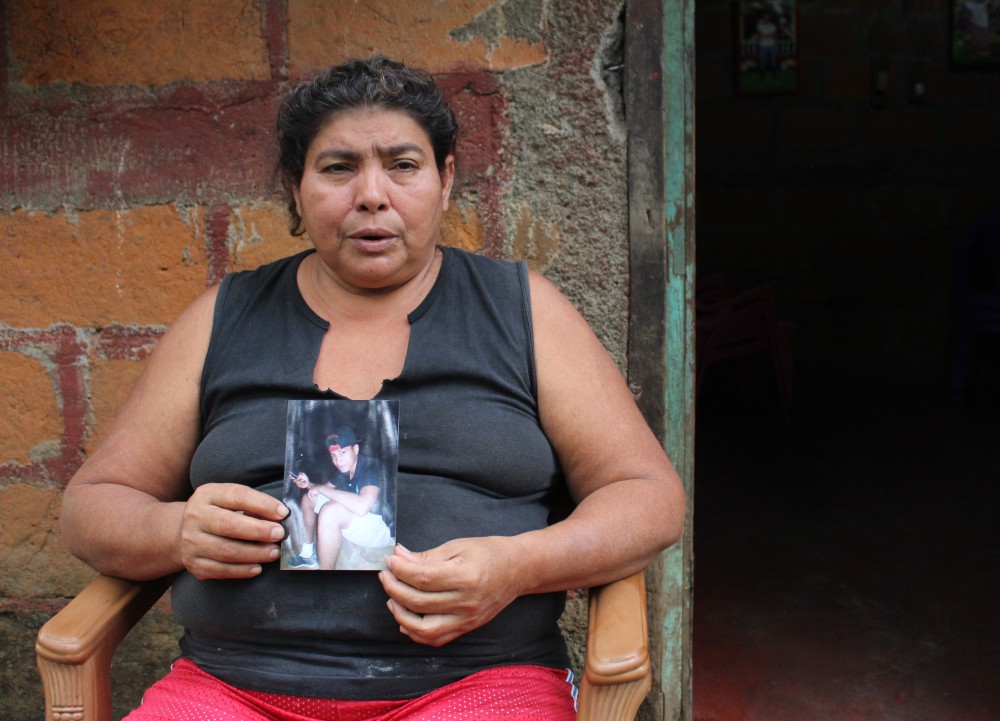
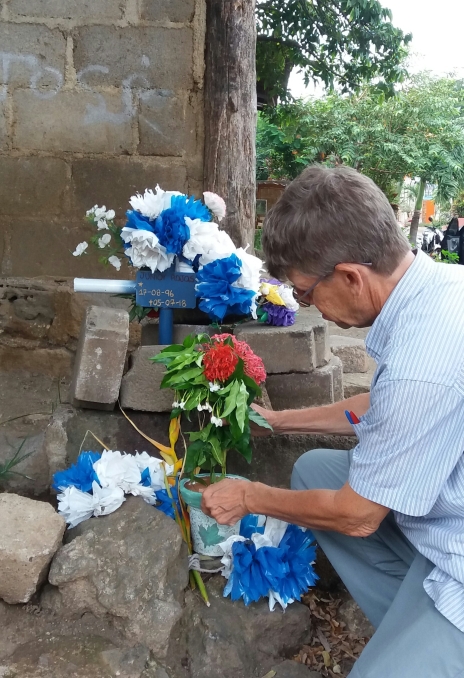

 Watching the world go by…
Watching the world go by… Pastel colours.
Pastel colours. Window shadows
Window shadows The biggest door in town
The biggest door in town Rocking chair
Rocking chair Crumbling facade
Crumbling facade Dawn, and working
Dawn, and working Red hues
Red hues Preparing for Easter
Preparing for Easter Ready for action
Ready for action Jazz practice
Jazz practice Rainy season
Rainy season Cycling to work
Cycling to work Time for a chat
Time for a chat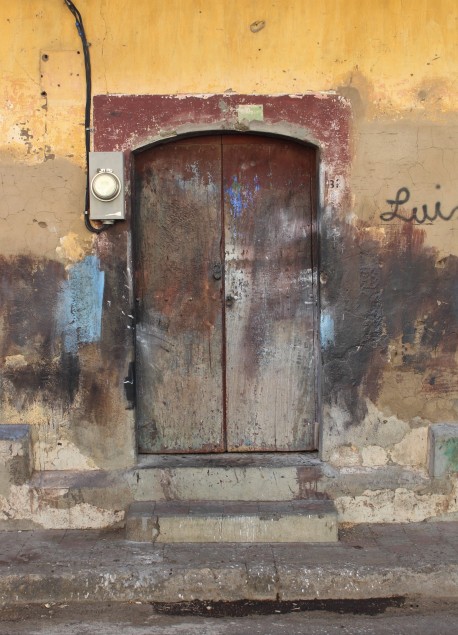 My favourite…? Almost like an oil painting
My favourite…? Almost like an oil painting
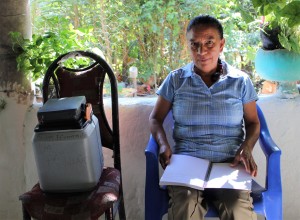 Let’s start 2017 with some good news. I will introduce you to my friend Graciela. Graciela’s story shows us that life is getting better in most developing countries, that foreign aid works, and that most people in most poor countries are healthier now than they used to be. They are taking control of their lives.
Let’s start 2017 with some good news. I will introduce you to my friend Graciela. Graciela’s story shows us that life is getting better in most developing countries, that foreign aid works, and that most people in most poor countries are healthier now than they used to be. They are taking control of their lives.
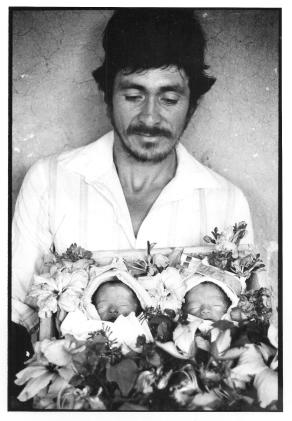
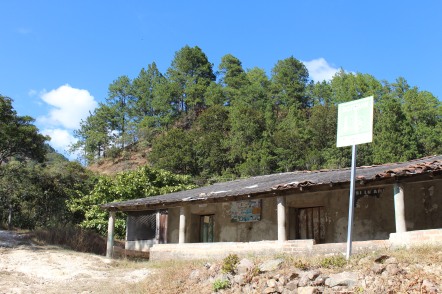

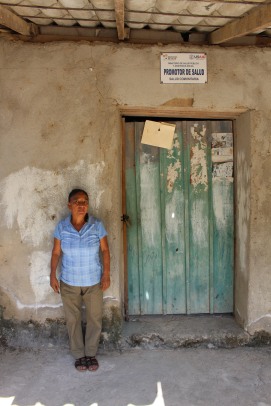
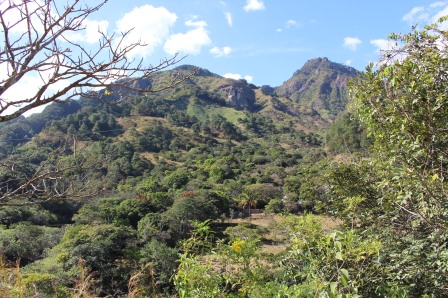
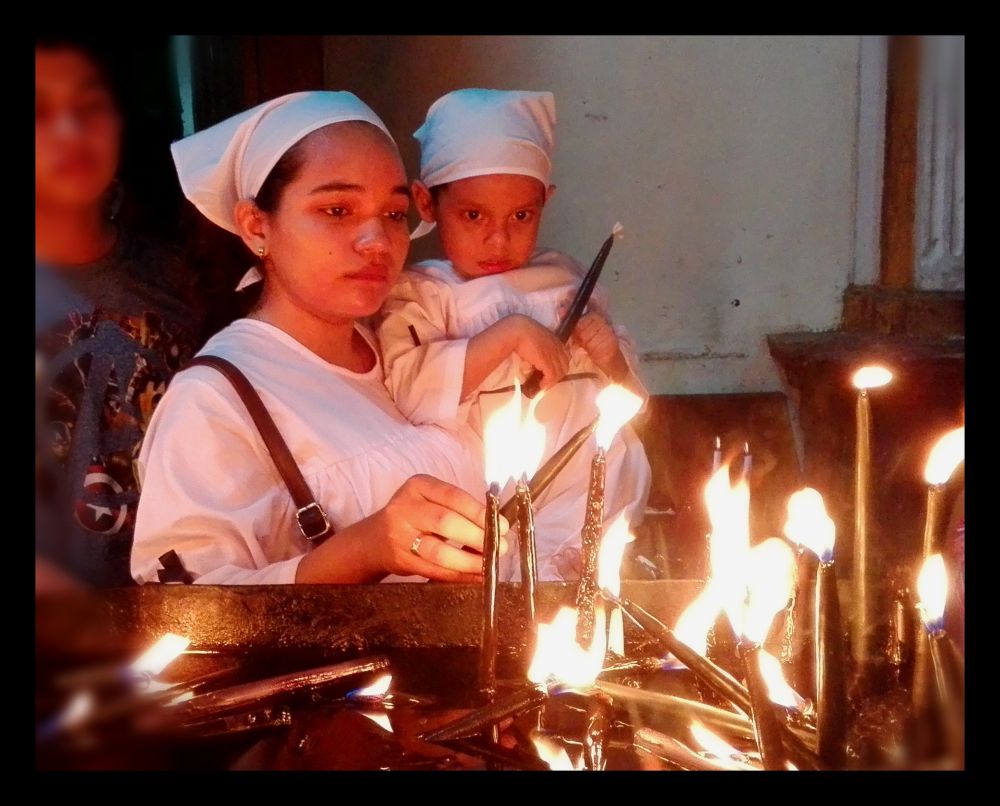
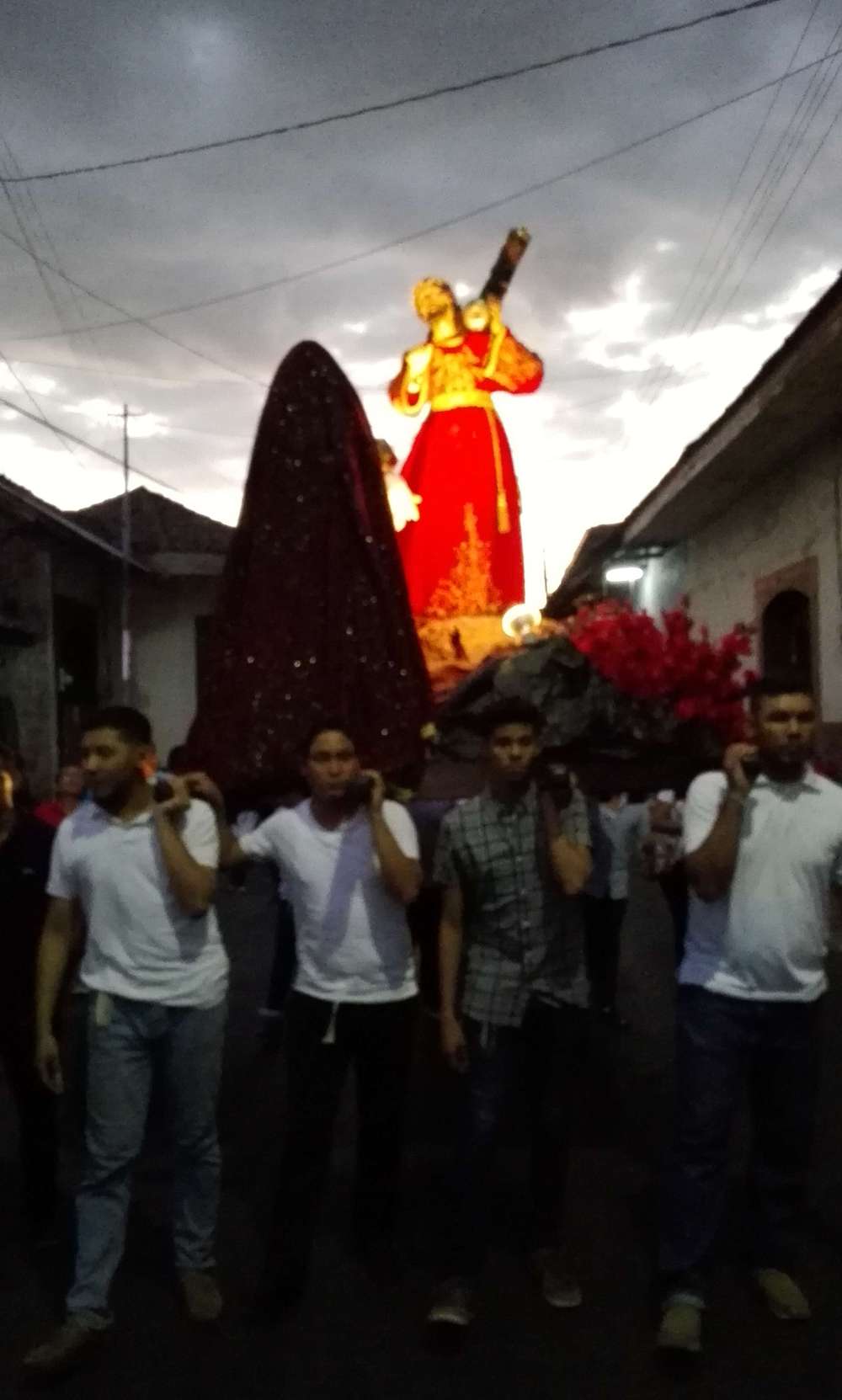
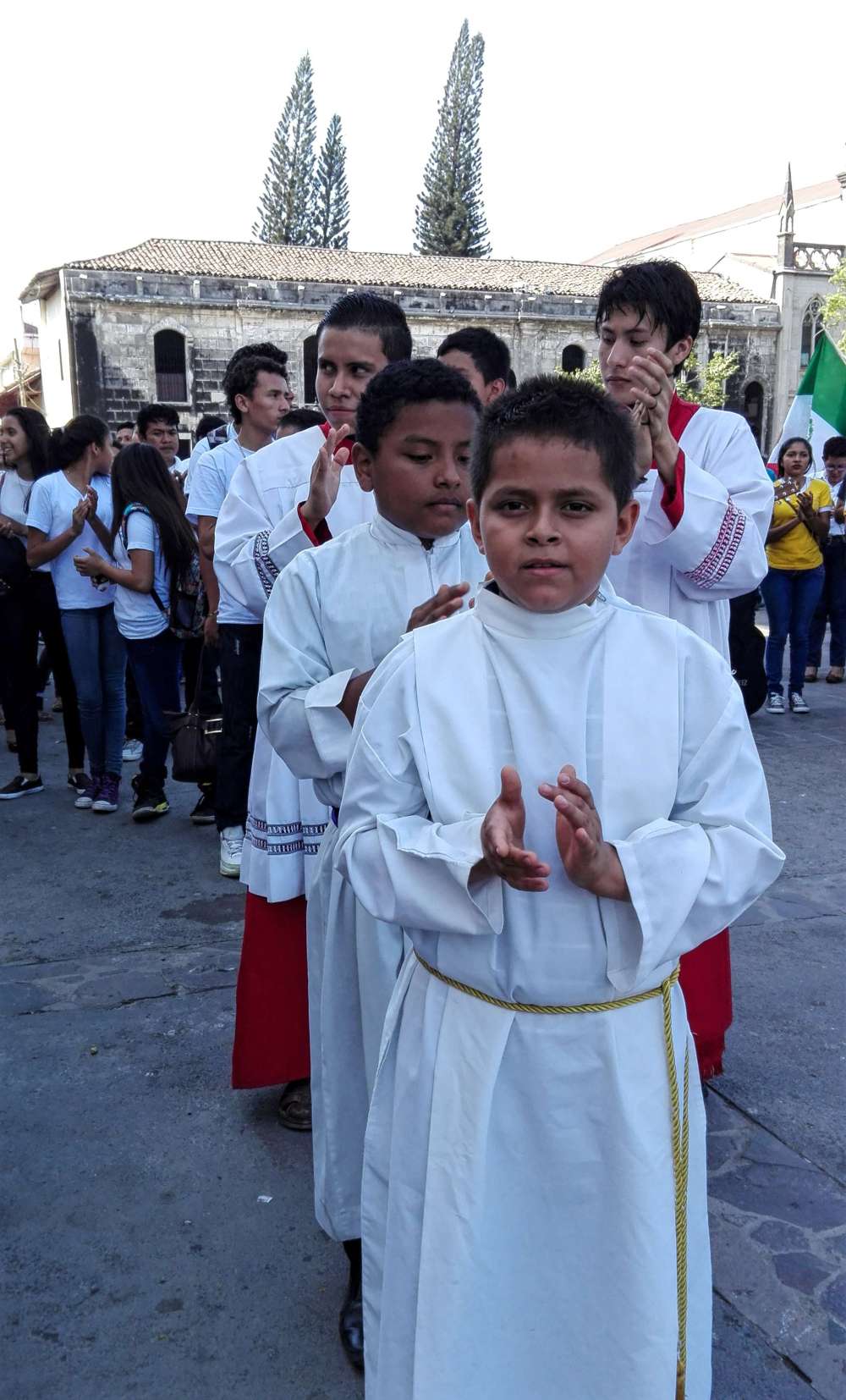
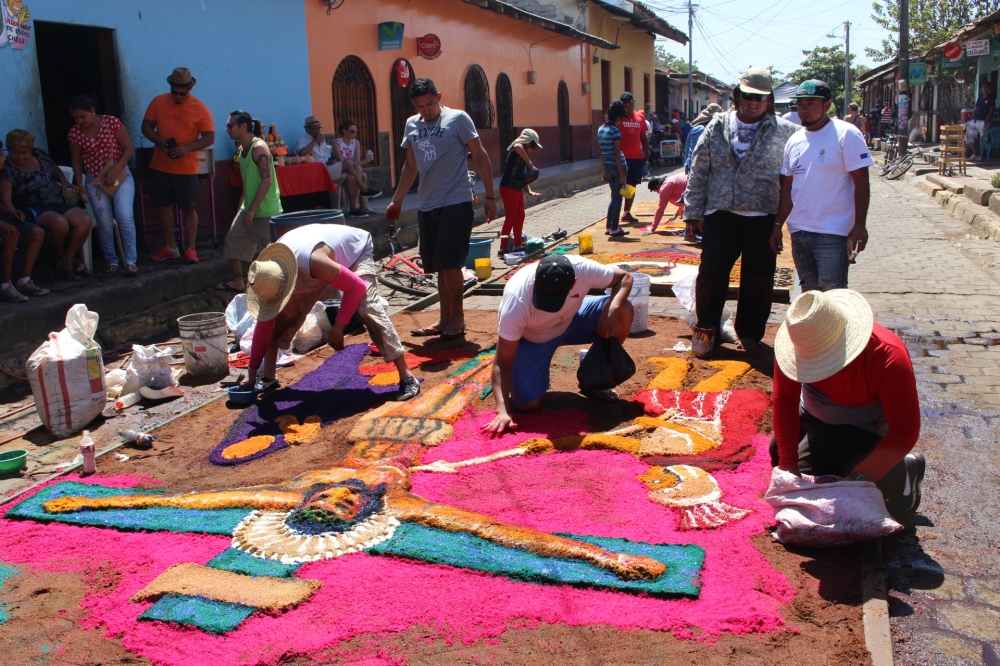
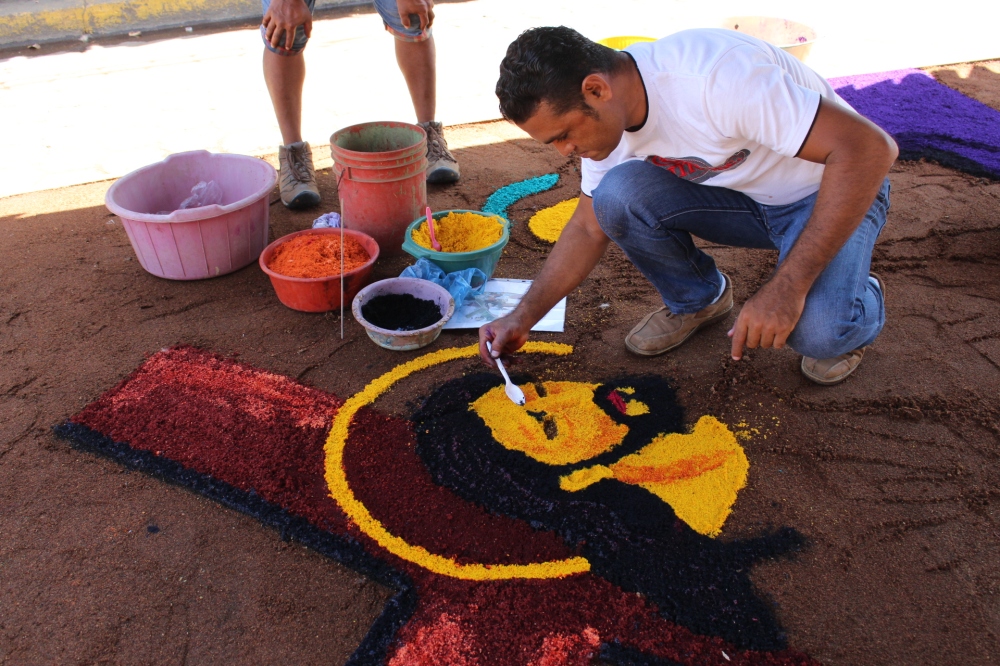
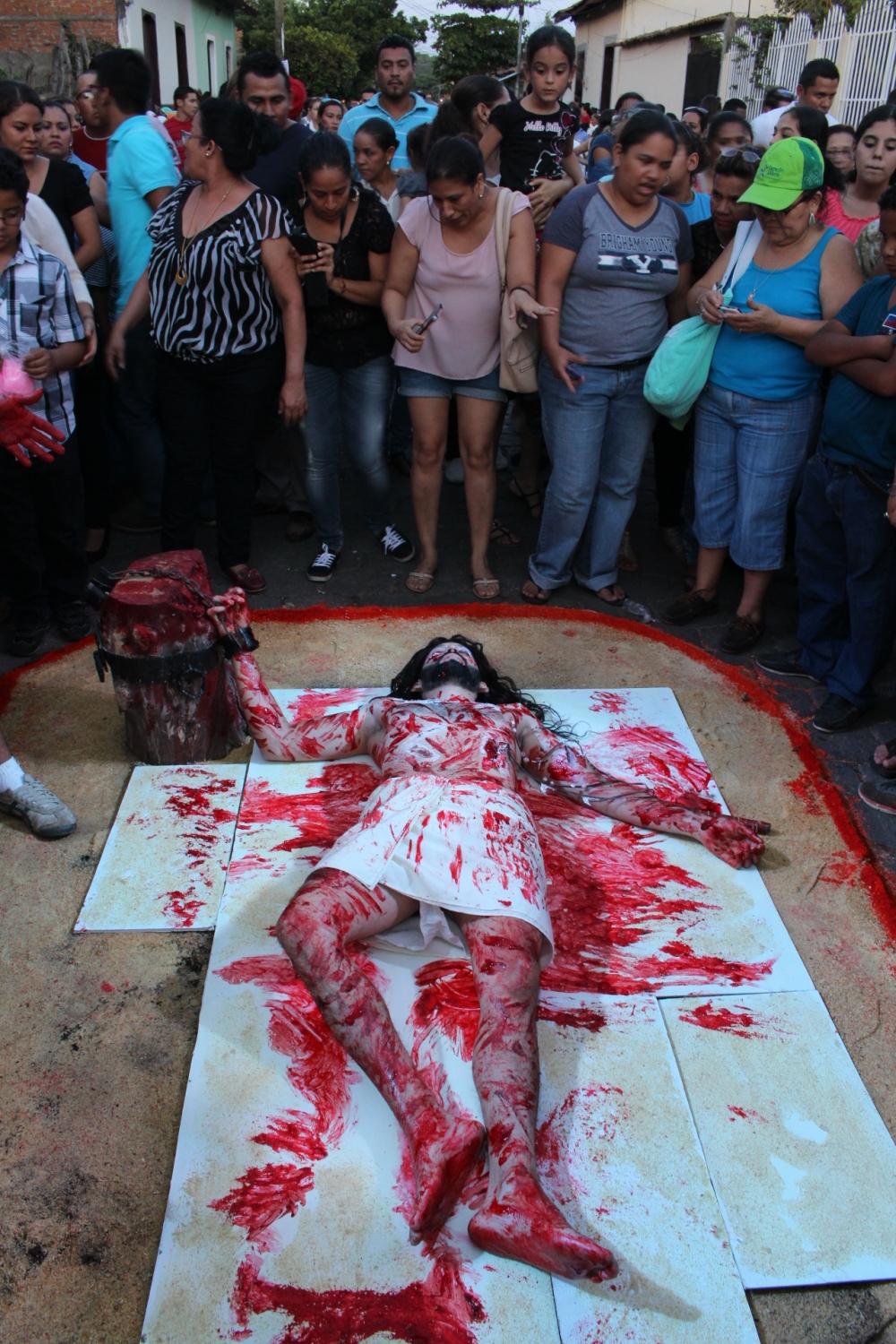
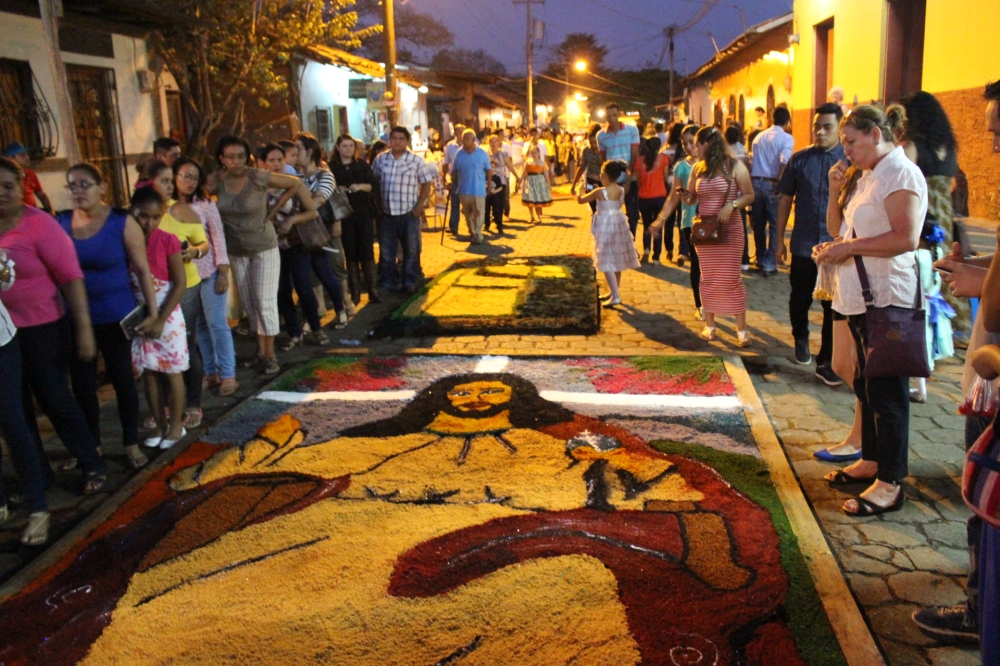
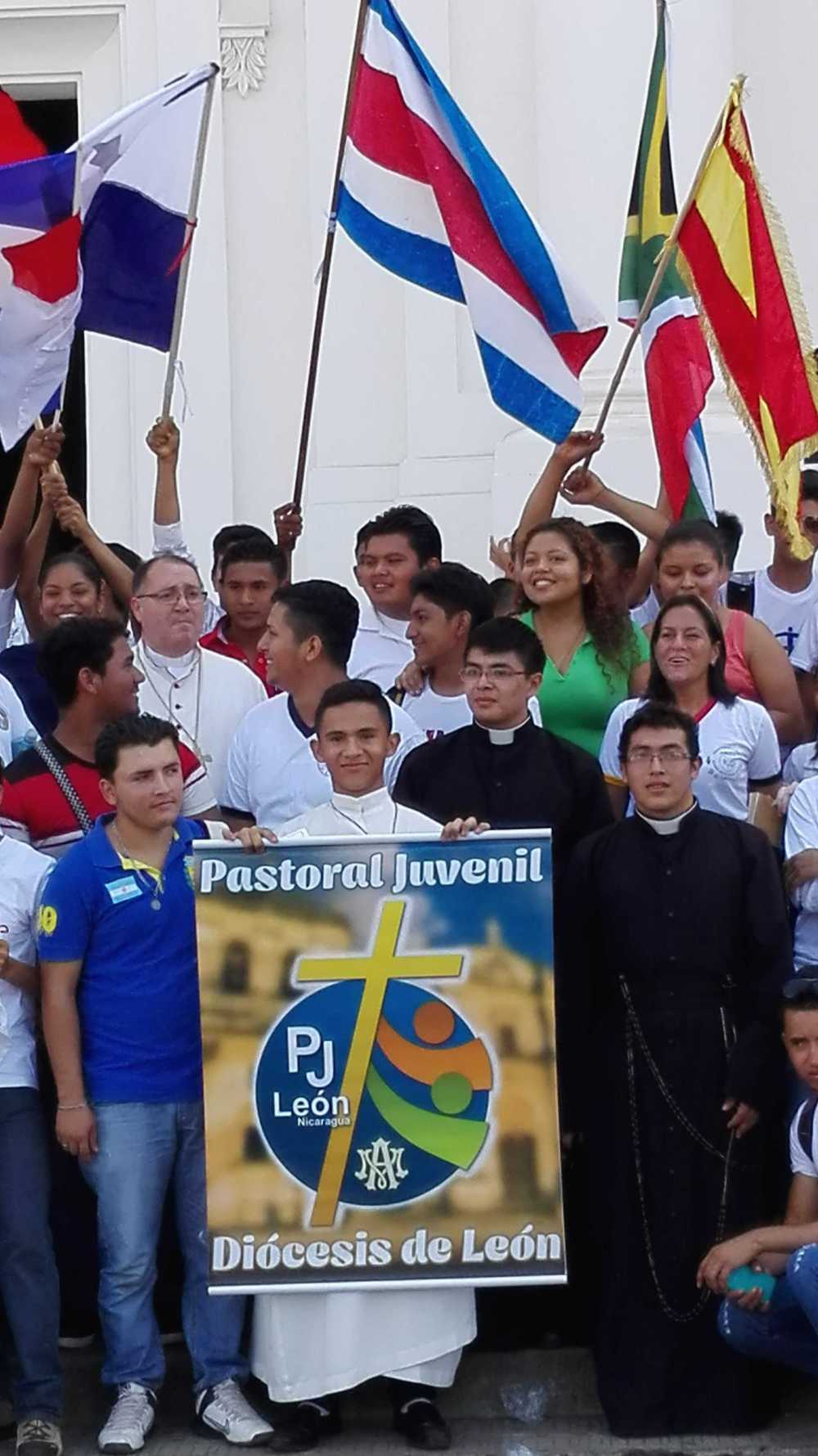
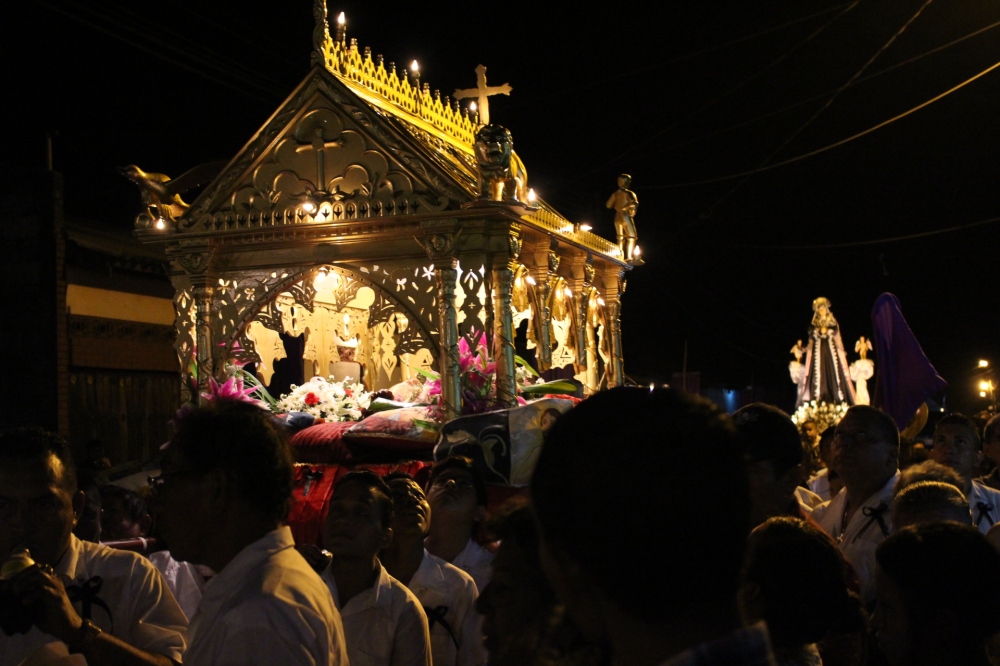
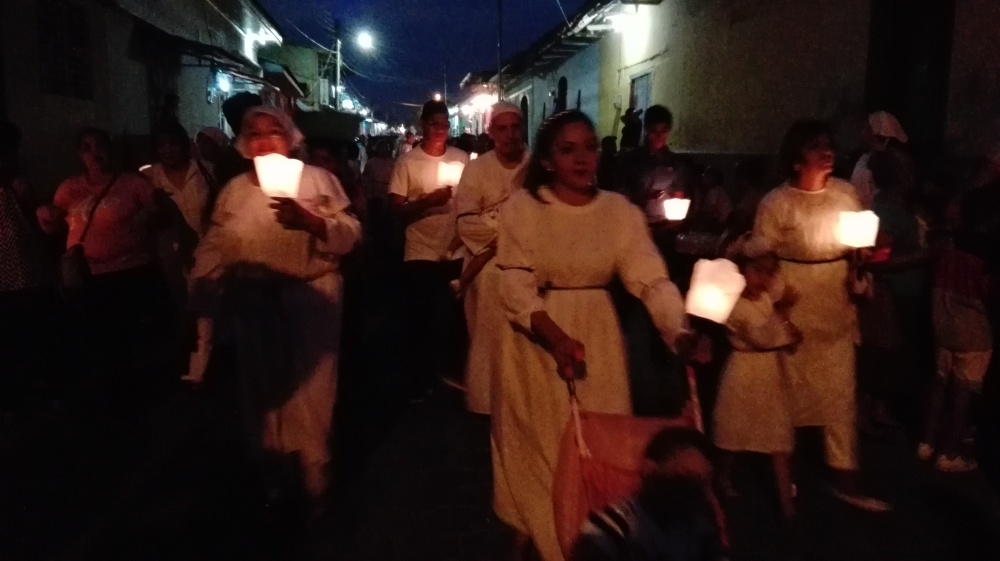
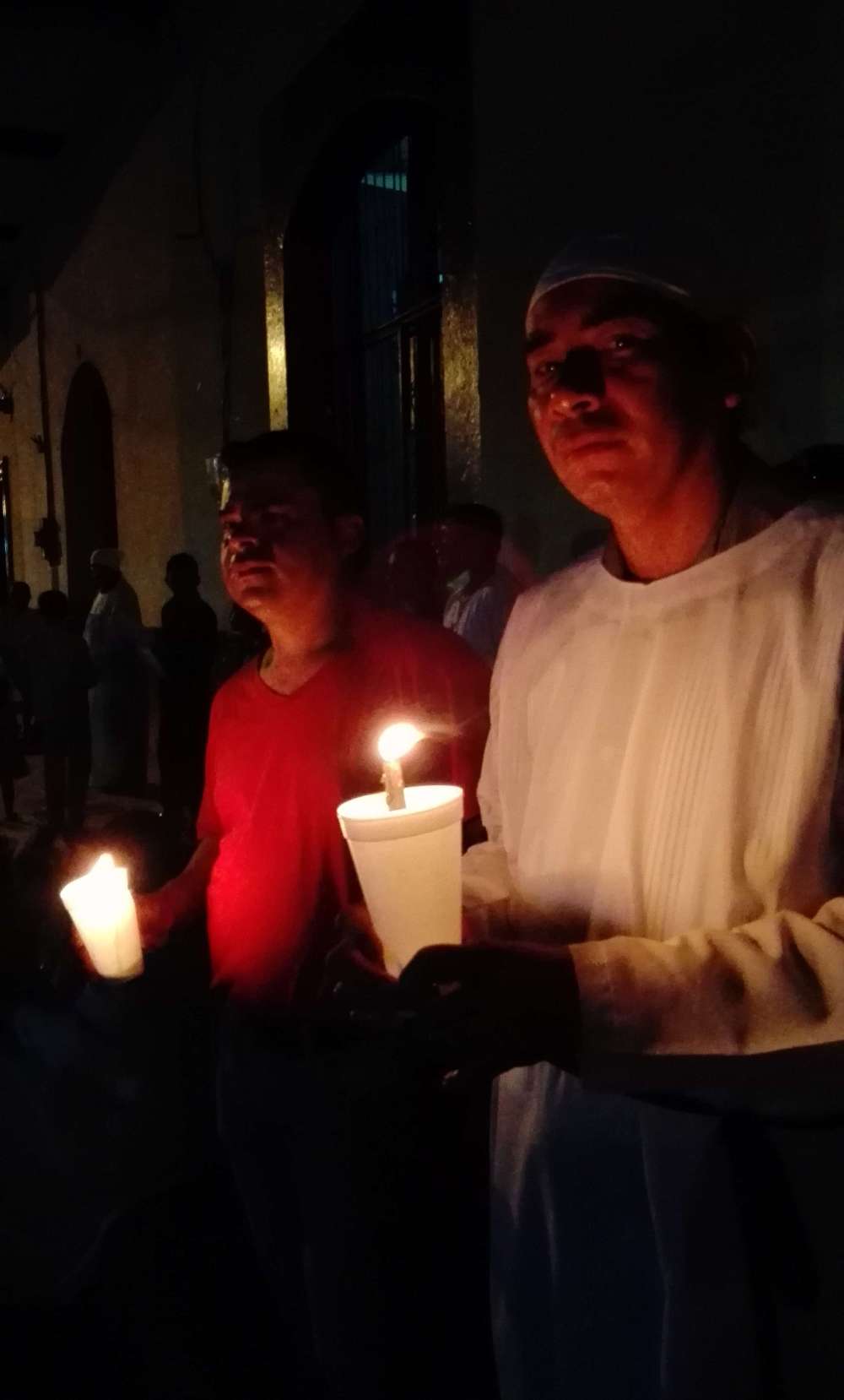
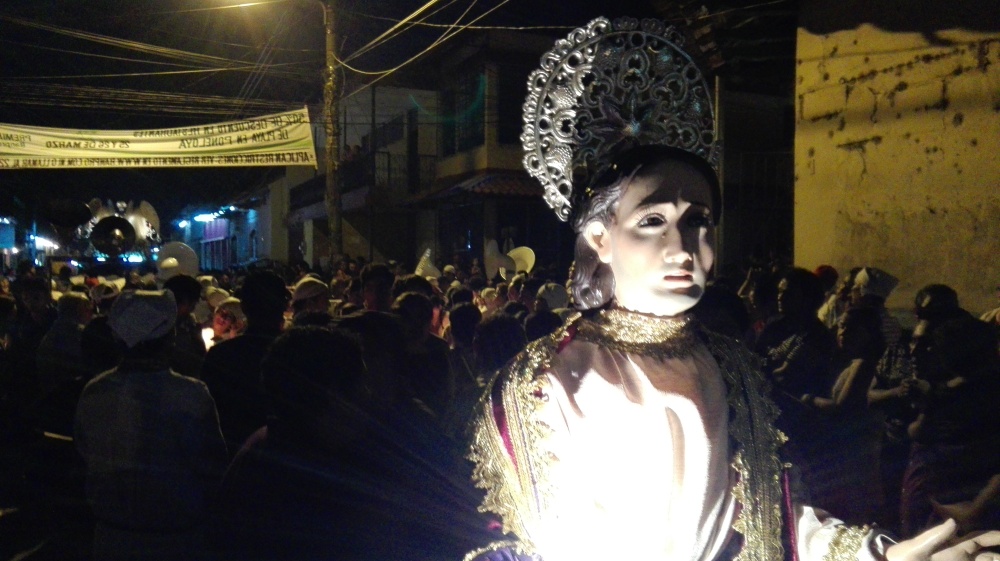
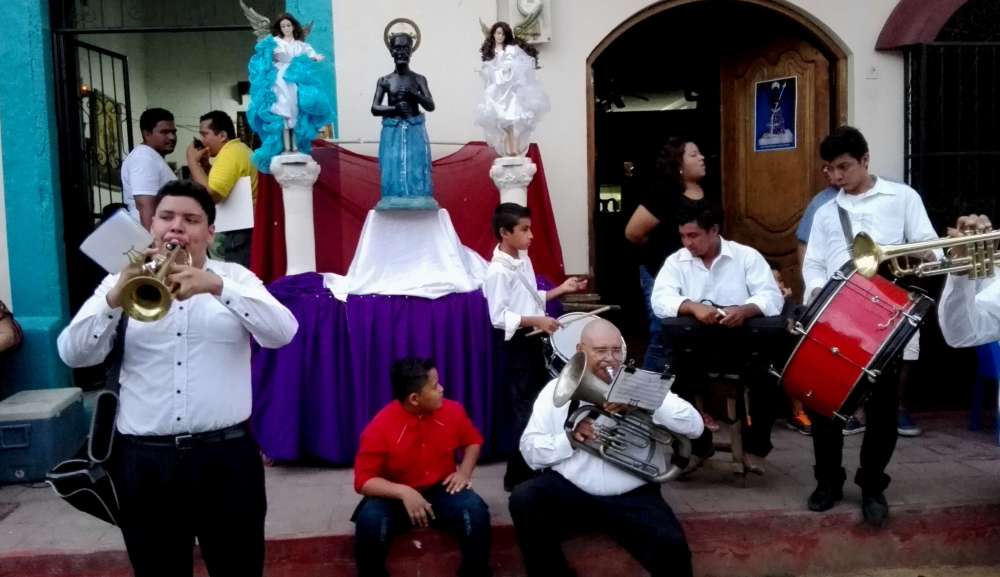
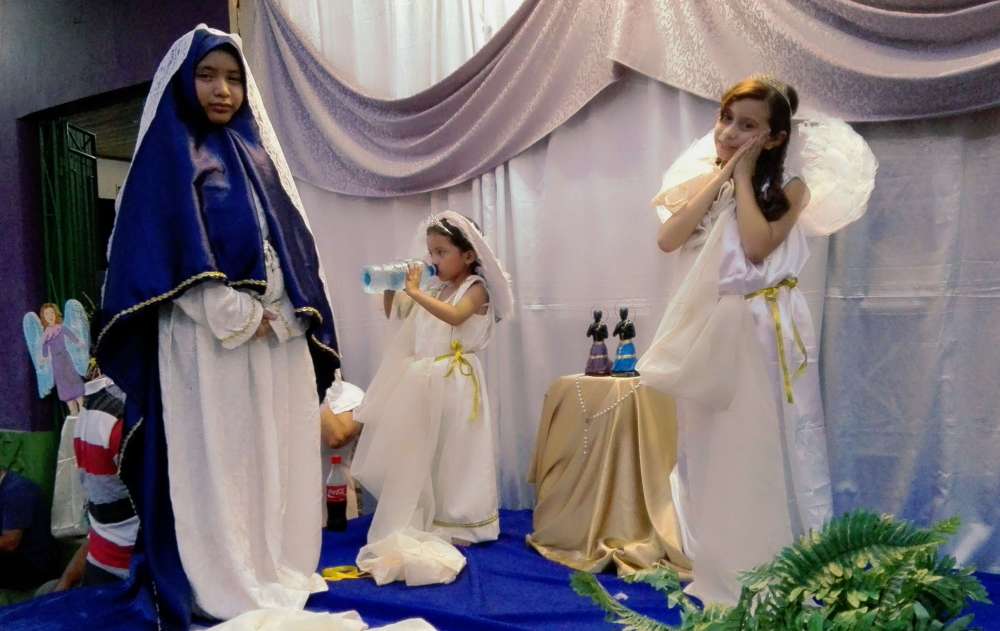
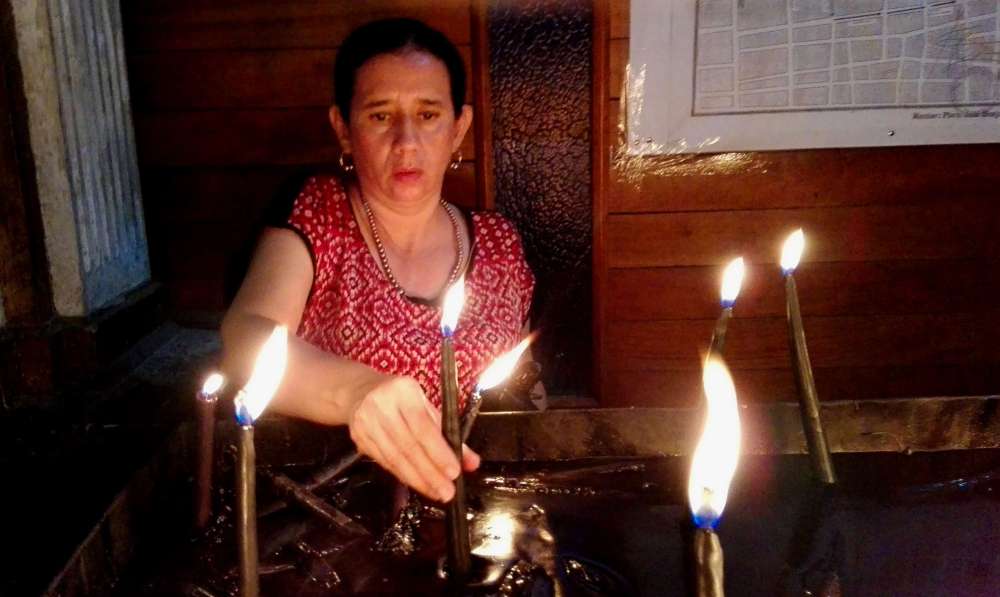
















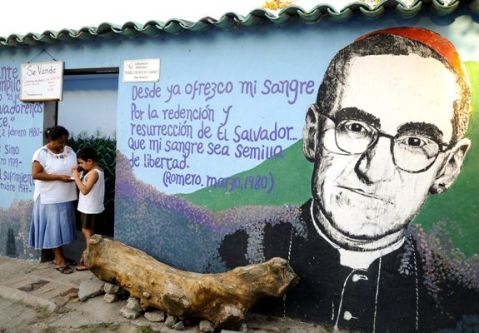 La conversión de Mons. Romero fue un proceso gradual que para él significó ser abierto a conocer la realidad, y su sensibilidad al sufrimiento de la gente. En 1977 fue nombrado Arzobispo y tomó posesión ante la algarabía de los ricos y la desilusión de los pobres. Pero los cuerpos de seguridad del gobierno generalizaron la represión al grado que solamente poco después le asesinaron a su mejor amigo, el padre Rutilio Grande. De ahí en adelante, se fue produciendo un giro en monseñor Romero; pues ya no se trataba solo del padre Rutilio; sino de catequistas, sacerdotes, obreros, campesinos que aparecían descuartizados por los cuerpos represivos.
La conversión de Mons. Romero fue un proceso gradual que para él significó ser abierto a conocer la realidad, y su sensibilidad al sufrimiento de la gente. En 1977 fue nombrado Arzobispo y tomó posesión ante la algarabía de los ricos y la desilusión de los pobres. Pero los cuerpos de seguridad del gobierno generalizaron la represión al grado que solamente poco después le asesinaron a su mejor amigo, el padre Rutilio Grande. De ahí en adelante, se fue produciendo un giro en monseñor Romero; pues ya no se trataba solo del padre Rutilio; sino de catequistas, sacerdotes, obreros, campesinos que aparecían descuartizados por los cuerpos represivos.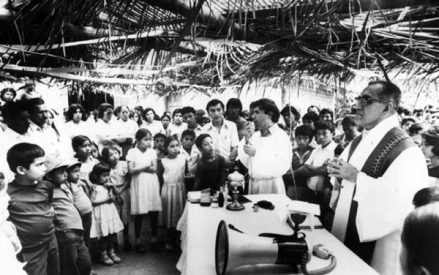 Vimos monseñor com la persona que privilegió el diálogo como salida a la crisis del país. Para nuestro pueblo, Mons. Romero fue un modelo de hombre verdaderamente libre para decir la verdad oportunamente, sin odio y con respeto. Cuanto necesitamos eso en nuestros días!. Monseñor Romero trascendió nuestras leyes jurídicas cuando afirmó que éstas deben estar al servicio de las personas y no al revés. De ahí que, ante la brutal represión desatada por las Fuerzas Armadas en contra del pueblo, Monseñor Romero les dijo:
Vimos monseñor com la persona que privilegió el diálogo como salida a la crisis del país. Para nuestro pueblo, Mons. Romero fue un modelo de hombre verdaderamente libre para decir la verdad oportunamente, sin odio y con respeto. Cuanto necesitamos eso en nuestros días!. Monseñor Romero trascendió nuestras leyes jurídicas cuando afirmó que éstas deben estar al servicio de las personas y no al revés. De ahí que, ante la brutal represión desatada por las Fuerzas Armadas en contra del pueblo, Monseñor Romero les dijo: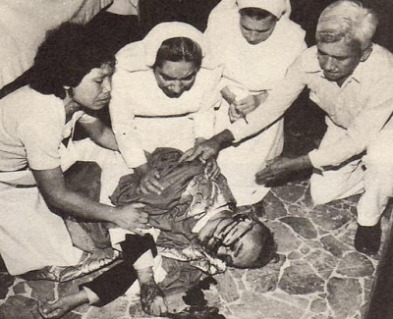 Estas fueron las palabras de monseñor Romero que tocaron las fibras de la fuerza Armada y de sus Escuadrones de la Muerte, quienes le asesinaron al siguiente día lunes, 24 de marzo de 1980.
Estas fueron las palabras de monseñor Romero que tocaron las fibras de la fuerza Armada y de sus Escuadrones de la Muerte, quienes le asesinaron al siguiente día lunes, 24 de marzo de 1980.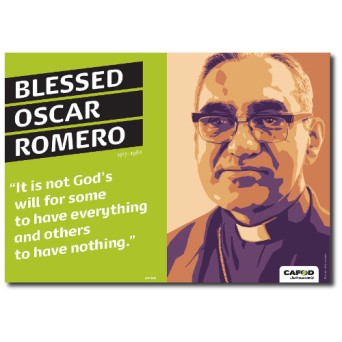 Las palabras de Romero tienen mucha relevancia hoy. Por ejemplo, sobre el tema de migración, tan presente hoy en nuestro tiempo, Romero dijo: “Es triste tener que dejar la patria porque en la patria no hay un orden justo donde puedan encontrar trabajo”(1978).
Las palabras de Romero tienen mucha relevancia hoy. Por ejemplo, sobre el tema de migración, tan presente hoy en nuestro tiempo, Romero dijo: “Es triste tener que dejar la patria porque en la patria no hay un orden justo donde puedan encontrar trabajo”(1978).